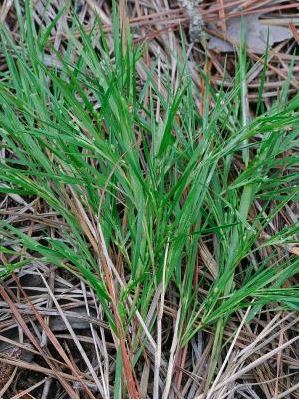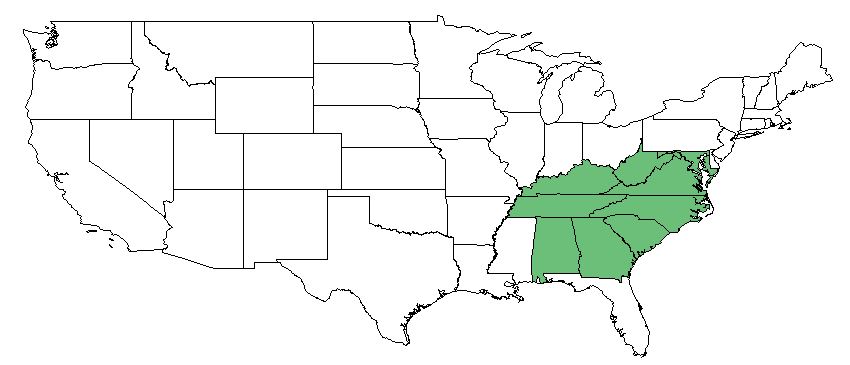Difference between revisions of "Dichanthelium angustifolium"
(→Taxonomic Notes) |
|||
| Line 19: | Line 19: | ||
}} | }} | ||
==Taxonomic Notes== | ==Taxonomic Notes== | ||
| − | Synonyms: | + | Synonyms: ''P. aciculare'' Desvaux ex Poiret; ''D. aciculare'' ssp. ''angustifolium'' (Elliott) Freckmann & Lelong |
Varieties: none | Varieties: none | ||
Revision as of 17:22, 26 June 2018
Common name: needleleaf rosette grass [1], narrow-leaved witchgrass [2]
| Dichanthelium angustifolium | |
|---|---|

| |
| Photo by Gary Fleming at the Digital Atlas of the Virginia Flora | |
| Scientific classification | |
| Kingdom: | Plantae |
| Division: | Magnoliophyta - Flowering plants |
| Class: | Liliopsida - Moncots |
| Order: | Cyperales |
| Family: | Cyperaceae |
| Genus: | Dichanthelium |
| Species: | D. angustifolium |
| Binomial name | |
| Dichanthelium angustifolium Elliot | |

| |
| Natural range of Dichanthelium angustifolium from USDA NRCS Plants Database. | |
Contents
Taxonomic Notes
Synonyms: P. aciculare Desvaux ex Poiret; D. aciculare ssp. angustifolium (Elliott) Freckmann & Lelong
Varieties: none
Description
D. angustifolium is a perennial graminoid of the Poaceae family native to North America and Puerto Rico. [1]
Distribution
D. angustifolium is found along the southeastern coast of the United States, from Texas to New York, as well as Puerto Rico. [1]
Ecology
Habitat
D. angustifolium is found in sandy pinelands and fields. [2]
Phenology
D. angustifolium flowers April, May, July, September, and October. [3]
Fire ecology
D. angustifolium is not fire resistant, and has low fire tolerance. [1]
Use by animals
D. angustifolium is moderately palatable for grazing and browsing animals, but not for humans. [1]
Conservation and Management
D. angustifolium is listed as endangered by the New Jersey Office of Natural Lands Management Department of Environmental Protection and Energy, and by the Tennessee Natural Heritage Program Department of Environment and Conservation. [1]
Cultivation and restoration
Photo Gallery
References and notes
- ↑ 1.0 1.1 1.2 1.3 1.4 1.5 USDA Plant Database https://plants.usda.gov/core/profile?symbol=DIAC
- ↑ 2.0 2.1 Weakley, A. S. (2015). Flora of the Southern and Mid-Atlantic States. Chapel Hill, NC, University of North Carolina Herbarium.
- ↑ PanFlora Author: Gil Nelson URL: http://www.gilnelson.com/PanFlora/ Date Accessed: 5/21/18